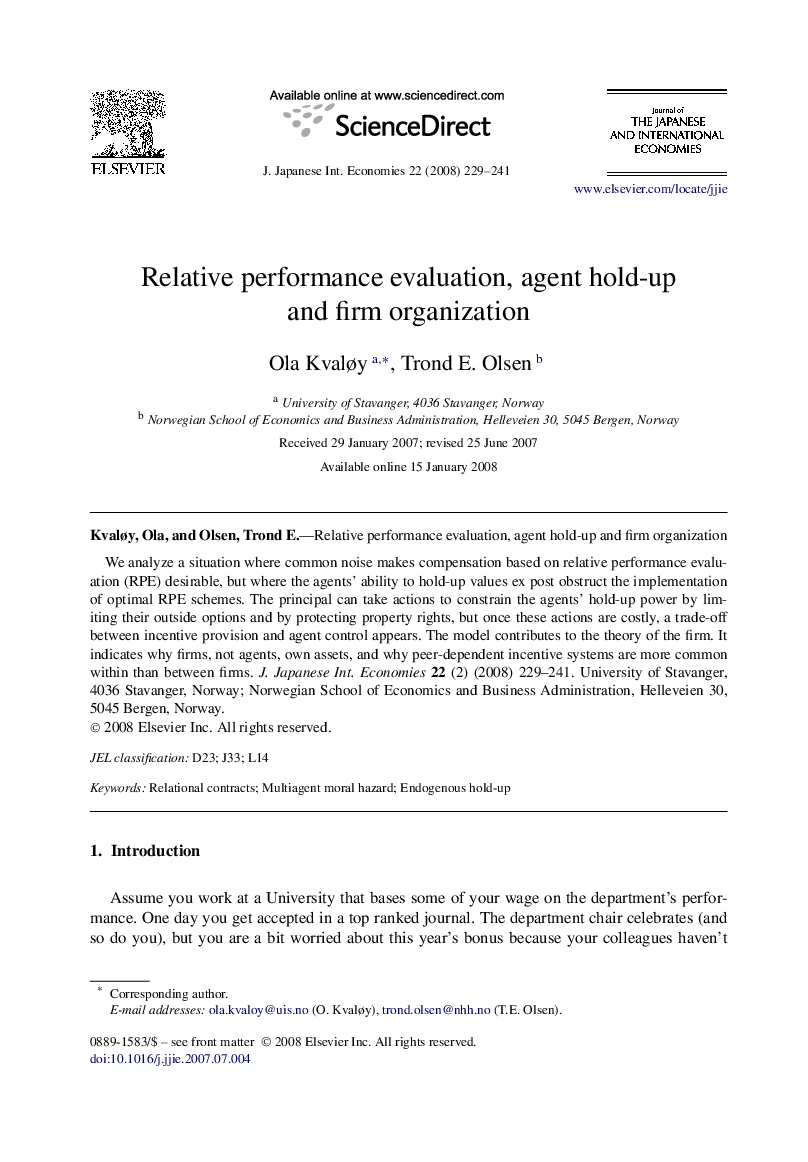| Article ID | Journal | Published Year | Pages | File Type |
|---|---|---|---|---|
| 965561 | Journal of the Japanese and International Economies | 2008 | 13 Pages |
Abstract
We analyze a situation where common noise makes compensation based on relative performance evaluation (RPE) desirable, but where the agents' ability to hold-up values ex post obstruct the implementation of optimal RPE schemes. The principal can take actions to constrain the agents' hold-up power by limiting their outside options and by protecting property rights, but once these actions are costly, a trade-off between incentive provision and agent control appears. The model contributes to the theory of the firm. It indicates why firms, not agents, own assets, and why peer-dependent incentive systems are more common within than between firms. J. Japanese Int. Economies 22 (2) (2008) 229-241.
Keywords
Related Topics
Social Sciences and Humanities
Economics, Econometrics and Finance
Economics and Econometrics
Authors
Ola Kvaløy, Trond E. Olsen,
